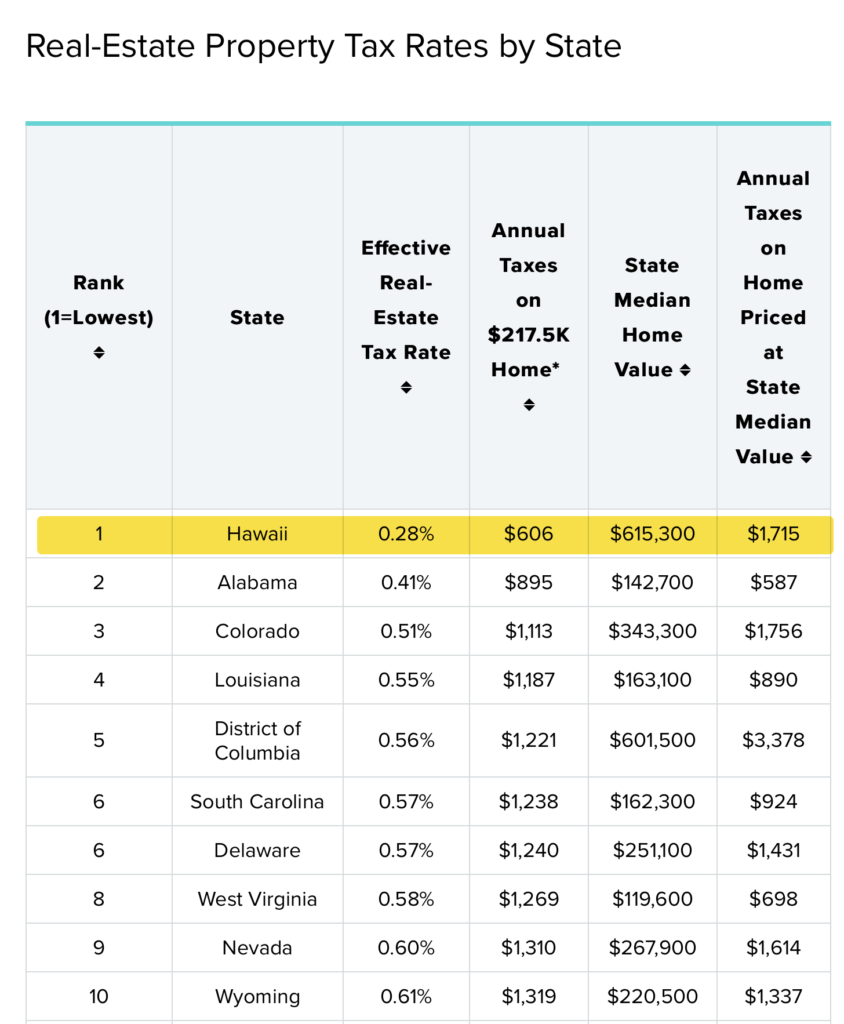What ARE the true costs of owning a home in Hawaii? Well, depending on if you have chosen to live on an acre with fruit trees and tropical landscaping or live in a condo with HOA fees, the answer is going to be quite different. However, no matter where you live in Hawaii and in what kind of home, you will have to pay property taxes.
I received a question about property taxes on a comment on one or real estate videos on YouTube and wanted to share some insight/info where I can. Here is the question: “Why, when I see some listings, the home is selling for $700K but the taxes paid last year is $1,400? And a house selling for $650K has over $5,000 paid in taxes last year? I’ve read that Hawaii claims to have low real estate taxes. Yet, with that example above, $5k in yearly taxes is about what I pay in one of the most expensive real estate tax areas in the country!”
A few people in my Kona Newbies group crow about how they are actually paying LESS to live in Hawaii than where they came from on the mainland because of what they pay each month for property taxes.
Hawaii Has The Lowest Property Tax Rate in America

The average American household spends $2,471 on property taxes for their homes each year, according to the U.S. Census Bureau, and residents of the 27 states with vehicle property taxes shell out another $442. (In Hawaii, we don’t pay ANY vehicle property taxes) So, while we may endure the “paradise tax” across the board in the islands, it is worth remembering there are people who pay about eight times the property tax rate Hawaii residents do — and they live in New Jersey. The lowest tax rate is a homeowners rate of $6.15 per $1000 of assessed value. So, an owner who lives in their own $1 million home in Kailua Kona generally would have a tax rate of approximately $6150 a year, while a home of similar value would face an annual tax of nearly $24,000 in Jersey.
But the tax rate varies if you are a resident or not, and if you are over 60 or 72.
Property Tax Exemptions in Hawaii
The basic home exemption for homeowners under the age of 60 is $40,000, for homeowners 60 to 69 years of age, $80,000 and for homeowners 70 years of age or over, $100,000 with age calculated as of January 1, the date of the assessment. An additional exemption of 20% of the assessed value of the property not to exceed $80,000 was enacted effective 2005.
You are eligible for the home exemption if you own and occupy the property as your principal home and file or intend to file your resident HI state income tax return or apply for a waiver of this requirement. The ownership of your property must be recorded at the Bureau of Conveyances on or before December 31 or June 30.
In the MLS system, when you are looking for homes, you will sometimes see the tax exemption information for the house. The information is pulled by the MLS. However, that tax may not be YOUR tax and you will need to do some research into what YOUR tax will be on the home based on YOUR circumstances.
You can learn more about Hawaii property tax rates at http://www.hawaiipropertytax.com/tax_rates.html
I wrote this post for LUVA Real Estate in 2018 to discuss property exemptions further.
For more information about the cost of living in West Hawaii, I invite those of you moving to West Hawaii join our 365Kona Newbies group and if you are moving to East Hawaii, join the 365Hilo Newbies group and you can ask residents what they are paying for living expenses so you can get that info in real time. This is part of the benefit we offer when you join the 365 Ohana!
